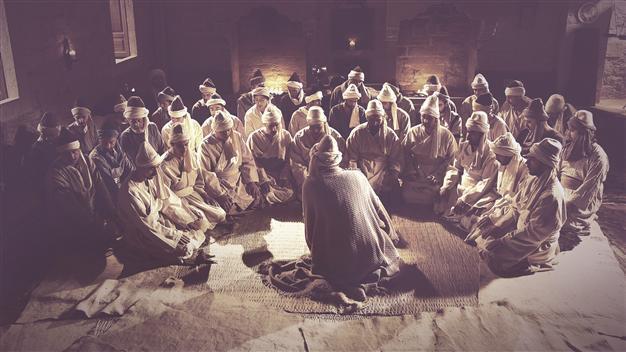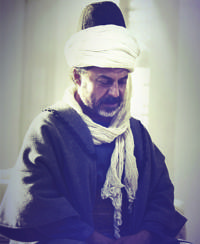Film depicts life of a philosophical pioneer Yunus Emre
ISTANBUL - Hürriyet Daily News

The film ‘Yunu Emre: Voice of Love’ tells the tale of Yunus Emre and his search for the self on the path of Divine Love. Once the screenplay was completed, the film was shot over a one-year period in 12 different provinces in Anatolia.
Beloved as a unifying figure among all in Turkey, Sufi mystic Yunus Emre will soon be coming to a theater nearby with a new film exploring the 13th-century figure’s life and philosophy.Yunus Emre spoke a universal message of peace, tolerance and love that still resonates today with people of all languages, religions and races. The film, “Yunus Emre: Voice of Love,” about the 13th-century dervish and his quest for divine love pays tribute to the profound impact and lasting contributions he has made to philosophy and literature.
Written and produced by Kürşat Kızbaz, the screenplay explores the worldly love and spiritual journey of the theologian, who is also considered the first and foremost poet of the Turkish language.
The film tells the tale of Yunus Emre and his search for self on the path of Divine Love. Yunus Emre is portrayed by Devrim Evin, while the cast also features Ahmet Mekin as Hacı Bektaş Veli; Altan Erekli as Jalaluddin Rumi, the poet, theologian and Sufi mystic known to the West simply as Rumi; and Bülent Emin Yarar as Taptuk Emre.
 Considered a pioneer of the philosophy of universal humanism, Yunus Emre embraced all of humanity, no matter their language, religion or race. His message of tolerance, love and divine love endures from the 13th century to the present, captured in the humanist themes of the poetry he wrote in Turkish. The life and philosophy of Yunus Emre are brought to the screen with all the poetry and historical texture of the 13th century.
Considered a pioneer of the philosophy of universal humanism, Yunus Emre embraced all of humanity, no matter their language, religion or race. His message of tolerance, love and divine love endures from the 13th century to the present, captured in the humanist themes of the poetry he wrote in Turkish. The life and philosophy of Yunus Emre are brought to the screen with all the poetry and historical texture of the 13th century. Filmed around Anatolia
The feature-length film was born of a three-year labor of love. Once the screenplay was complete, the film was shot over a one-year period in 12 different provinces in Anatolia.
Illustrious contemporaries of Yunus Emre, including Tapduk Emre, Rumi, Barak Baba, Sarı Saltuk and Hacı Bektaş Veli, are also portrayed in the film.
Shooting took place on location at historical sites. Sets were also constructed, while clothing and accessories were painstakingly designed to reproduce life in the 13th century. The score draws on the traditional instruments of Anatolia in the 13th century to create music that is symphonic.
The original score, inspired by the melodies of Anatolia, was written by officials at Kalan Müzik, Engin Arslan and Mayki. Along with traditional instruments such as the ney, rebap and tanbur, Western instruments including the piano, guitar and violin were used.
Special 3D and digital effects also enrich the cinematography of the film, with animation and graphics prepared by an expert and experienced team based both in Turkey and the United States, according to the filmmakers.
















